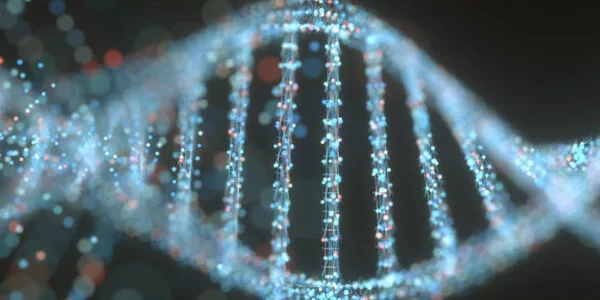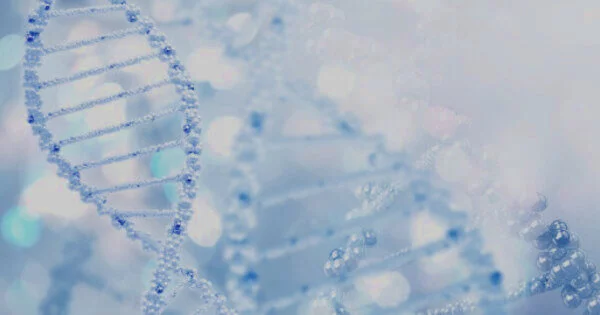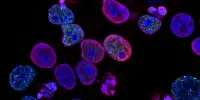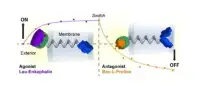The public’s access to genetic information is increasing as genomic sequencing technology progresses and costs continue to decline. It remains to be seen how this trend will affect clinical laboratories and enterprises that provide genetic data to consumers.
Researchers have discovered new information on a critical enzyme that enables DNA sequencing. The discovery is a significant step forward toward the future of customized medicine, in which doctors will be able to create medicines based on the genomes of specific patients.
In a paper published in Sciences Advances, researchers in the Department of Chemistry and the Department of Physics & Astronomy at the University of California, Irvine revealed new details about a key enzyme that makes DNA sequencing possible. The finding is a leap forward into the era of personalized medicine when doctors will be able to design treatments based on the genomes of individual patients.
“Enzymes enable life by stimulating chemical changes that would otherwise take an organism too long,” said Greg Weiss, a UCI professor of chemistry and a co-corresponding author of the current study. “One of the transformations we’re particularly interested in is one that is critical for all life on Earth: the mechanism by which DNA gets duplicated and repaired.”
Enzymes enable life by stimulating chemical changes that would otherwise take an organism too long. One of the transformations we’re particularly interested in is one that is critical for all life on Earth: the mechanism by which DNA gets duplicated and repaired.
Professor Greg Weiss
The chemical researched by the UCI-led team is an enzyme called Taq, named for the bacterium in which it was identified, Thermos aquaticus. Taq is a DNA replicator. Taq is used in polymerase chain reaction, a method with thousands of applications ranging from forensics to PCR testing to identify COVID-19.
The UCI-led research discovered that Taq, which aids in the replication of DNA, behaves radically contrary to what scientists previously believed. Instead of acting like a well-oiled, efficient machine constantly churning out DNA copies, the enzyme, according to Weiss, behaves like an indiscriminate shopper who explores the aisles of a store, tossing everything they see into the shopping cart.
“Instead of carefully picking each piece to add to the DNA chain, the enzyme captures dozens of misfits for each successfully inserted piece,” Weiss explained. “Like a shopper ticking goods off a shopping list, the enzyme compares each part to the DNA sequence it’s attempting to reproduce.”
Taq is well-known for rejecting any incorrect items that land in its metaphorical shopping cart; after all, rejection is the key to effectively reproducing a DNA sequence. What’s remarkable about the new findings is how frequently Taq rejects proper bases. “It’s the equivalent of a shopper taking half a dozen identical cans of tomatoes, putting them in the cart, and testing all of them when only one can is required.”

The take-home message: Taq is much, much less efficient at doing its job than it could be.
The discovery is a step toward changing medical treatment, according to Philip Collins, a professor in the UCI Department of Physics & Astronomy and a co-corresponding author of the current study. This is because scientists will be able to better grasp the accuracy of a person’s sequenced genome if they understand how Taq works.
“Every single person has a little different genome, with different mutations in different places,” Collins explained. Some are accountable for diseases, while others are accountable for nothing. To determine whether these distinctions are significant in healthcare – for appropriately prescribing medications – you must first understand them.”
“We don’t know how these enzymes accomplish their accuracy,” said Collins, whose group developed the nano-scale instruments used to investigate Taq’s activity. “How can you assure a patient that you sequenced their DNA correctly when it differs from the acknowledged human genome? “Does the patient actually have a rare mutation, or did the enzyme merely make a mistake?” Collins wonders.”
“This work could be used to develop improved versions of Taq that waste less time while making copies of DNA,” Weiss said.
The work’s implications extend beyond medicine; any scientific discipline that relies on precise DNA sequencing stands to profit from a deeper knowledge of how Taq operates. In understanding evolutionary histories using ancient DNA, for example, scientists rely on assumptions about how DNA changes through time, and those assumptions rely on reliable genetic sequencing.
“We’ve entered the century of genomic data,” Collins remarked. “At the turn of the century, we unraveled the human genome for the first time, and we’re starting to understand organisms, species, and human history with this newfound genetic information, but genomic information is only meaningful if it’s accurate.”
















